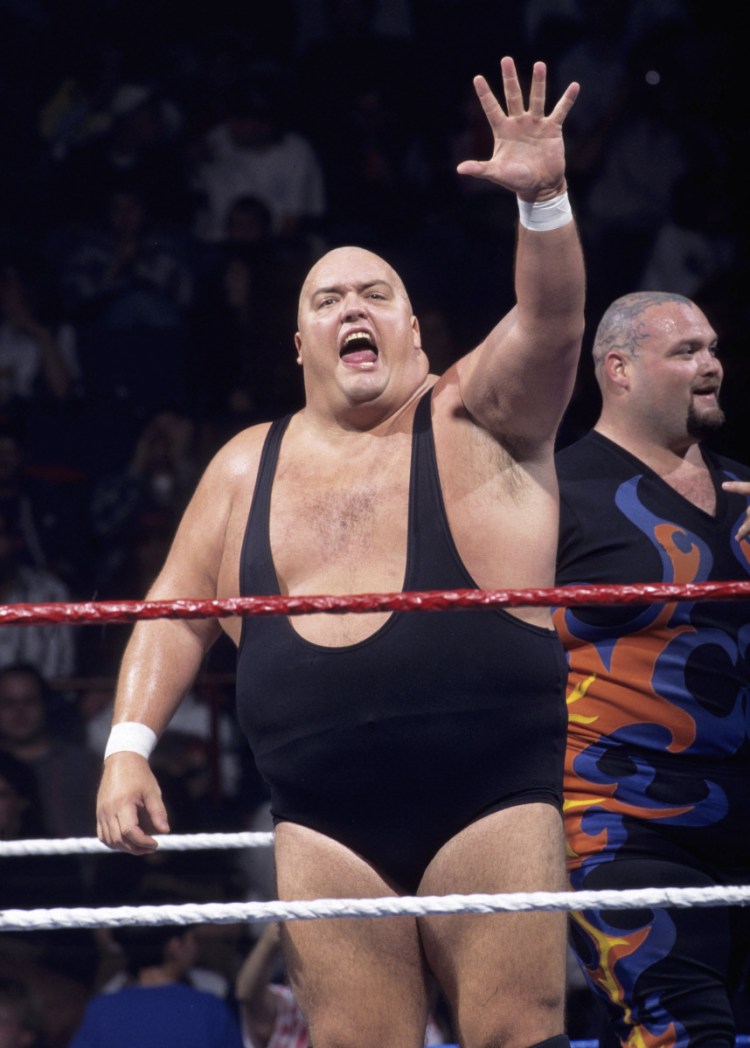King Kong Bundy, who rose to fame as a rival to WWF champion Hulk Hogan in the mid-1980s, died Monday of undisclosed causes at the age of 61.
Longtime friend David Herro announced Bundy’s death on Facebook after confirming it with his family, according to Pro Wrestling Sheet.
Born Christopher Pallies in New Jersey, Bundy capitalized on his immense size – his official WWE biography bills him as weighing 458 pounds – to rise up the pro-wrestling ranks after beginning his career in 1981. After a few years in regional circuits developing his character, with his black singlet and demand for a five-count while pinning opponents instead of the traditional three, Bundy joined what was then the WWF in 1985 and almost immediately made a name for himself as a heel at the first WrestleMania by pinning S.D. Jones in what the company claimed was a then-record nine seconds (the match was not actually that short).
Bundy then feuded with Andre the Giant before WWF ginned up the story line in which Bundy challenged Hogan for his world heavyweight title in late 1985. That culminated at WrestleMania 2 in April 1986, when Hogan – still battling the alleged rib injury Bundy had inflicted upon him in an earlier match – successfully defended his title in a steel-cage match.
Bundy would continue to wrestle in the WWF for two more years, often teaming with fellow behemoth Big John Studd, before leaving the circuit in 1988. He would make a brief return in 1994 as part of the Million Dollar Corporation run by Ted DiBiase and finished his career wrestling on independent circuits.
Bundy parlayed his pro-wrestling fame into appearances on “Married With Children,” the late-era Richard Pryor comedy “Moving” and in commercials, including a memorable spot for ESPN’s “SportsCenter”:
Along with other pro wrestlers such as “Superfly” Jimmy Snuka, Joseph “Road Warrior Animal” Laurinaitis and Paul “Mr. Wonderful” Orndorff, Bundy was part of a class-action lawsuit filed against WWE in 2016, alleging that the company did not do enough to protect its wrestlers against head injuries that led to long-term brain damage. A federal judge dismissed the lawsuit in 2018, ruling that many of the claims were frivolous or that the statute of limitations had expired.
Despite his menacing in-ring presence, Bundy was regarded by many as one of pro wrestling’s nice guys away from the cameras.
Send questions/comments to the editors.



Success. Please wait for the page to reload. If the page does not reload within 5 seconds, please refresh the page.
Enter your email and password to access comments.
Hi, to comment on stories you must . This profile is in addition to your subscription and website login.
Already have a commenting profile? .
Invalid username/password.
Please check your email to confirm and complete your registration.
Only subscribers are eligible to post comments. Please subscribe or login first for digital access. Here’s why.
Use the form below to reset your password. When you've submitted your account email, we will send an email with a reset code.